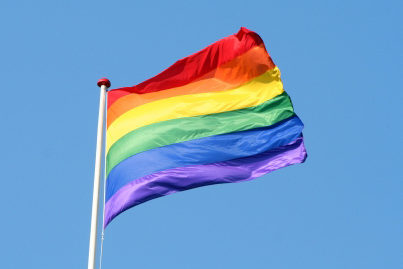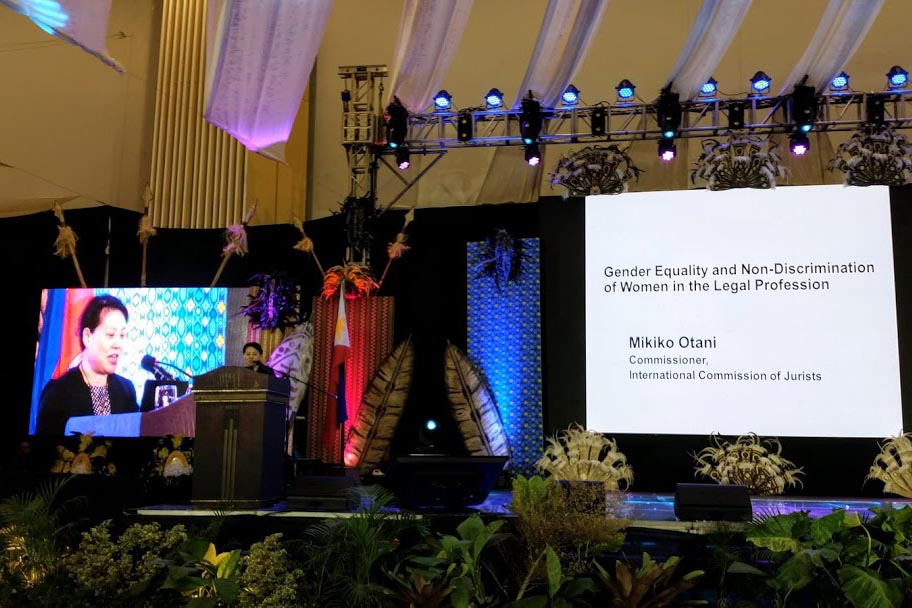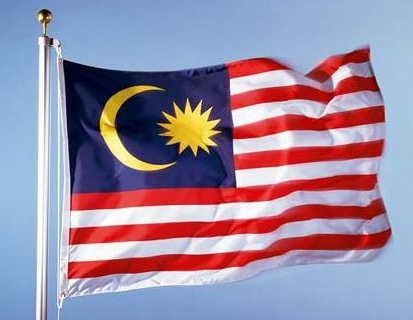
Jun 13, 2019 | News
The ICJ today applauded the 11 June judgment of the Botswana High Court striking down criminal law provisions criminalizing same-sex relations.
Rightly, the Court considered that, notwithstanding the fact that the provisions at issues on their face criminalized consensual anal penetration, irrespective of the gender of those involved, the law did in fact target and disproportionately affect same-sex relations.
The judgment follows shortly after the Kenyan High Court refused to invalidate an almost identical criminal provision in judgment handed down on 24 May.
“The Botswana High Court’s judgment reaffirms the universality of the rights to be free from discrimination, dignity, privacy and equality, and directly rebuts the often-made false claim that homosexuality is ‘un-African’,” said ICJ Africa Director Arnold Tsunga.
“The ICJ commends the Court, and encourages all African states to repeal archaic criminal provisions criminalizing same-sex sexual intercourse often introduced into their legal systems by colonial powers,” he added.
In a decision referencing international human rights law and standards, and citing a growing wave of global jurisprudence on the unconstitutionality of the criminalization of consensual same-sex relations, identity and expression, the Court concluded that sections 164(a); 164(c), 165 and 167 of the Botswana Penal Code violated the rights to dignity, liberty and equality of homosexual men.
Letsweletse Motshidiemang, a 24 year-old university student who identifies as homosexual, and is currently in a relationship with a man, brought the case before the Court. Advocacy organization “Lesbians, Gays and Bisexuals Of Botswana” (LEGABIBO) was admitted as amicus curiae, and supported Motshidiemang’s case.
Despite partial legislative recognition of the need to protect people’s rights, regardless of sexual orientation, and comments made by Botswana President Mokgweetsi Masisi late last year that, “there are also many people of same sex relationships in this country, who have been violated and have also suffered in silence for fear of being discriminated. Just like other citizens, they deserve to have their rights protected”, the Attorney General (AG) had opposed Motshidiemang’s challenge, describing the case as “cry babies”.
In a fitting rebuke of this position, the Court indicated that the AG had not produced a “scintilla or iota of justification” for its defense of the offending provisions and, instead relied on “bare assertion and/or speculations” about public morality.
Given the substantial evidence presented to the Court by the applicant and amicus curiae about the harmful effects of continued criminalization of same-sex relations, the Court observed that it “perpetuates stigma and shame against homosexuals and renders them recluse and outcasts”, finding that “there is no victim in consensual same sex intercourse inter se adults”.
Concluding that such discrimination against lesbian, gay, bisexual and transgender (LGBT) persons violates sexual autonomy and their “right to choose a sexual partner” the Court found that the provisions go “to the core of [homosexual persons’] worth as a human being[s] and “pollutes compassion” in Botswanan society.
“The judgment is a victory for LGBT persons in Botswana whose consistent advocacy ground firmly in human rights should be applauded. This judgment should catalyze further action from the Botswana authorities to ensure the full enjoyment of all human rights by LGBT persons in Botswana,” said Tsunga.
Contact:
Arnold Tsunga, ICJ Africa Director, t: +63 77 728 3249 ; e: arnold.tsunga(a)icj.org
Timothy Fish Hodgson, ICJ Legal Adviser, t: +27828719905 ; e: timothy.hodgson(a)icj.org

Jun 8, 2019 | Multimedia items, News, Publications, Reports, Thematic reports, Video clips
The Indian Government must give effect to recent rulings of the Supreme Court and end discrimination and other human rights violations and abuses based on real or perceived sexual orientation, gender identity and expression, the ICJ said today at the Delhi launch of its new report on the conditions of LGBTQ people in India.
The ICJ’s 152-page report Living with Dignity: Sexual Orientation and Gender Identity-Based Human Rights Violations in Housing, Work, and Public Spaces in India details human rights violations suffered by LGBTQ persons in their family homes, workplaces, and public spaces including streets, public toilets, public transport and shopping centres.
Following on the Supreme Court’s decisions in NALSA and Navtej, which strongly affirmed the human rights of LGBTQ persons, the report identifies legal and policy challenges, as well as structural barriers that prevent them from enjoying the full range of human rights.
”Despite the promise of recent jurisprudence, the Indian government has not consistently met its constitutional and international obligations to guarantee the rights of LGBTQ persons,” said Frederick Rawski, ICJ Asia Director.
“The ICJ encourages the Indian State to build on existing efforts to protect these rights to ensure full compliance with the right to live with dignity in terms of the Indian Constitution and international human rights law,” he added.
The Living with Dignity report identifies a wide range of violations and abuses of rights in the context of housing, work and public spaces.
Human rights violations associated with housing included discrimination in accessing rental accommodation, harassment and violence by landlords and by families, and arbitrary evictions.
The report sets out instances of discrimination in the workplace, at all stages of employment, and throughout the formal and informal sectors.
It also documents obstacles faced by LGBTQ persons seeking access to public spaces, including discriminatory policing, gendered toilets and transport, harassment and abuse by State officials, and discriminatory targeting through the application of public nuisance, sex work and anti-beggary laws.
The report offers a set of recommendations meant to make existing law and policy more protective of LGBTQ persons’ rights and calls for the amendment or repeal of certain existing laws.
“There is no single law or policy solution to ending long-standing and systemic discrimination. But legal and policy reforms are essential to addressing the abuses suffered by LGBTQ persons and these must include the effective, inclusive and meaningful participation of a diverse range of LGBTQ individuals and advocacy groups,” Rawski said.
The report also recommends the convening of a nationwide consultation geared towards the enactment of a comprehensive anti-discrimination law prohibiting discrimination on the grounds of sexual orientation and gender identity as is required by international human rights law.
In a preface to the report, ICJ Commissioner and former Chief Justice of the Delhi High Court, Justice Ajit Prakash Shah, indicates his hope that the report will “be used as a tool by lawyers, human rights defenders and policymakers” and “contribute to enhancing public discourse on LGBTQ rights, as well as broader issues of discrimination and the rule of law in India”.
Download
Report: Living with Dignity: Sexual Orientation and Gender Identity-Based Human Rights Violations in Housing, Work, and Public Spaces in India (English)
Executive Summary (English)
Infographics
SOGIE-based Human Rights violations in Housing
SOGIE-based Human Rights violations at Work
Barriers experiences by LGBTQ people in accessing Public Spaces
Contact
Maitreyi Gupta (Delhi), ICJ International Legal Adviser for India, e: maitreyi.gupta(a)icj.org, t: +91 7756028369
Frederick Rawski, ICJ Asia Pacific Region Director, e: frederick.rawski(a)icj.org, t: +66 644781121
Read also
Briefing Paper on Navtej Singh Johar et al. v. Union of India and Others, July 2018.
Unnatural Offences”: Obstacles to Justice in India Based on Sexual Orientation and Gender Identity, February 2017.
ICJ Briefing Paper on Implementation of NALSA Judgment, 2016.
Watch the video

May 15, 2019 | News
The ICJ today condemned a series of the acts of violence directed against the Muslim community in the aftermath of the Easter attacks on 21 April in Sri Lanka directed at churches and other places.
In the most recent attacks on 13 May, at least one person was killed in anti-Muslim mob violence in Nattandiya. In addition, various attacks have resulted in the looting and destruction of mosques, Muslim-owned businesses and houses in several parts of the island including Negombo, Chilaw, Kurunegala and Gampaha.
The ICJ called upon the State authorities to conduct independent, impartial and effective investigations into the attacks and bring all perpetrators to justice in line with international standards. Furthermore, the ICJ urges the Government of Sri Lanka to send a clear public message that acts of violence against any religious minorities are not tolerated.
“Attacks perpetrated against religious minorities are more likely to occur in a climate of impunity” said Fredrick Rawski, ICJ’s Regional Director for Asia and the Pacific. “The fact that Sri Lanka has a history of serious violations of human rights of religious minorities makes it even more urgent that the Government act to safeguard the human rights of all persons and take immediate measures to protect members of religious minorities from further violence.”
Delayed action or inaction on the part of law enforcement authorities during and in the immediate aftermath of the attacks has further exacerbated the situation. Given the recurring patterns of mob violence against religious minorities in Sri Lanka, a handful of arrests will not suffice. It must be followed up by independent and impartial investigations and, where warranted, prosecutions as part of an effective preventive strategy to counter such collectively organized violence.
Under international human rights law, including the International Covenant on Civil and Political Rights, to which Sri Lanka is a party, States have a duty to protect freedom of religion, which includes persons from religious minorities against abuses committed against them by any person or group.
The Government of Sri Lanka must take appropriate security measures in response to the worst terror attack in recent years. However, it must ensure that the volatile situation is not made worse by inaction to prevent anti-Muslim violence and vigilantism. Moreover, the State must ensure that any counter-terrorism measure is adopted and implemented in line with its international human rights law obligations and does not explicitly or implicitly target a particular community.

Apr 1, 2019 | News
On 31 March, Mikiko Otani, ICJ’s Commissioner and a member of the UN Committee on the Rights of the Child, spoke to Filipino lawyers at the bi-annual National Lawyers’ Conference of the Integrated Bar of the Philippines (IBP), which took place at the Iloilo Convention Center, Iloilo City.
Mikiko Otani, who had been Chair of the Committee on International Human Rights of the Japan Federation of Bar Associations (JFBA) remains active in the JFBA, talked about the importance of advancing gender equality in the legal profession and the important initiatives of the JFBA on eliminating gender discrimination.
She noted that “female lawyers experience many forms of discrimination in the workplaces, practices, court rooms and bar associations.”
In countries all over the world, many formal barriers women used to face in entering the legal profession, including admission to law schools, the bar, have been eliminated.
However, women continue to face barriers, some of which are specific to the legal profession, but others common to women who work more generally.
Mikiko Otani noted that when she started practice as a lawyer in 1990, women applicants for jobs at law firms would often be asked during the interview whether they planned on getting married or having children.
Law firms preferred to hire male lawyers as they were thought to be unencumbered with looking after household matters, such as housekeeping and child care.
She recalled, “My colleagues questioned my decision to get married and have children almost immediately after becoming a lawyer while also continuing my practice as this was an unusual for women lawyers in Japan to do at that time. They felt that my decision to start a family at that point would be a hindrance to my career.”
She also talked about the bias observed in case assignment, where only male lawyers would be assigned to cases that required extensive traveling, while female lawyers would be often assigned to family cases, which are considered to be easy, unpopular or low-profile cases.
There was also frequent bias against female lawyers in promotion or offering partnership in law firms, contributing to a major gender gap in income between male and female lawyers.
In 2008, the JFBA formulated a Basic Plan which included the study of inequalities between male and female lawyers in Japan, finding ways to ensure a work-life balance for women, creating complaint handling bodies, and hosting trainings and educational activities in order to promote gender equality.
Mikiko Otani’s remarks resonated among many female lawyers in the Philippines, who shared in the discussion that followed that they face the same challenges.
“As lawyers, it is our responsibility to assist everyone, including women, in accessing justice,” said Marienne Ibadlit, a member of the Board of Governors of the IBP.
“We cannot be faithful to this responsibility if within our profession, we perpetuate gendered relationships and social inequalities that discriminate against women. A bar association that is committed to gender equality is a prerequisite to a justice system that does not discriminate against women and ensures the full enjoyment of women of their human rights.”
Contact:
Emerlynne Gil, Senior International Legal Adviser for Southeast Asia, t: +662 619 8477 (ext. 206) ; e: emerlynne.gil(a)icj.org

Mar 15, 2019 | News
The ICJ called on the Government of Malaysia to take immediate steps to protect the right of all persons in the country to freedom of expression and assembly, after seven organizers of the International Women’ Day (IWD) March were summoned for questioning by police authorities on 14 March 2019.
“It is very concerning that the Malaysian authorities continue to rely on repressive legislation to control and undermine freedom of expression and freedom of assembly in the country,” said Emerlynne Gil, ICJ’s Senior International Legal Adviser.
The Women’s March took place in Kuala Lumpur, on 9 March 2019. The demands of the participating groups included an ‘end of all violence based on gender and sexual orientation’, the ban of all child marriages, and the setting of RM1,800 as a minimum wage.
A statement by the Dang Wangi District Police Deputy Chief identified the organizers as individuals who had spoken at an ‘LGBT’ rally.
There were reportedly taken in for questioning on 18 March for potential violations of Section 4(1) of the Sedition Act and Section 9(5) of the Peaceful Assembly Act. They remain at risk of being charged for these offences.
The ICJ considers the Sedition Act 1948 and the Peaceful Assembly Act 2012 to be incompatible with international standards. The ICJ has previously called on the Government of Malaysia to abolish both laws, which have historically been used to silence voices of those challenging governmental policy.
The laws place restrictions on the exercise of freedom of expression that are overbroad, unnecessary and disproportionate, and inconsistent with rule of law and human rights principles. The Pakatan Harapan Government committed itself to abolishing the Sedition Act 1948 and the Peaceful Assembly Act 2012, but has not done so to date.
“The vague definition of ‘seditious tendencies’ in the Sedition Act has been used as a tool for silencing government critics and human rights defenders by previous administrations. It is disappointing that the Malaysian authorities have ended the moratorium on the use of the Sedition Act 1948, and continue to use it, instead of moving towards its abolition,” said Gil.
According to international standards, any limits on the right to peaceful assembly should not require prior authorization by the authorities. Notification requirements must not be unduly bureaucratic and be used only for the purpose of allowing the authorities to facilitate the exercise of the right to peaceful assembly, and to protect public safety.
In a 14 March statement, the organizers claimed to have been in regular communication with the police and to have been in compliance with the relevant notice provisions of the Peaceful Assembly Act.
The ICJ calls on the Malaysian authorities to end any investigations targeting the organizers of the Women’s March pursuant to the Peaceful Assembly and Sedition Act. It also calls on the Government to abolish the Peaceful Assembly Act and the Sedition Act.
Contact
Emerlynne Gil, ICJ Senior International Legal Adviser, t: +66 840923575, e: emerlynne.gil(a)icj.org
Malaysia-Womens March-News-web stories-2019-ENG (full story with additional information, in PDF)









